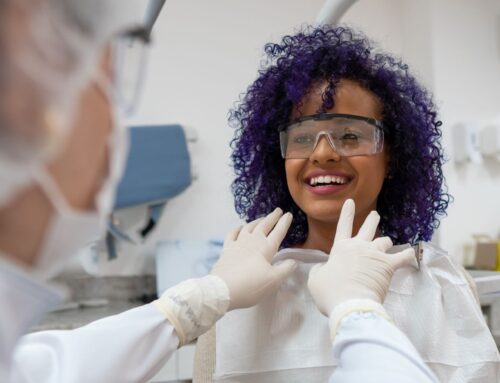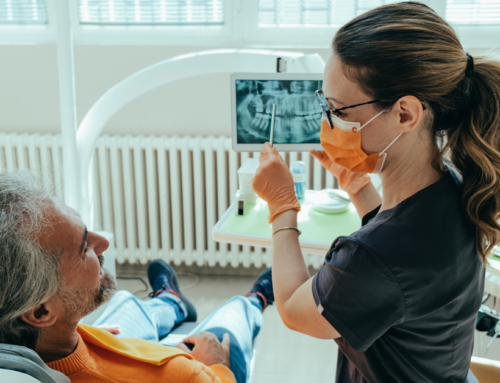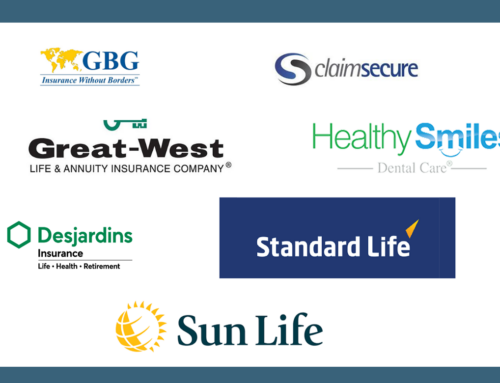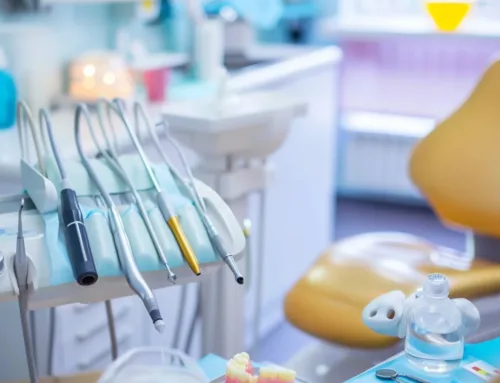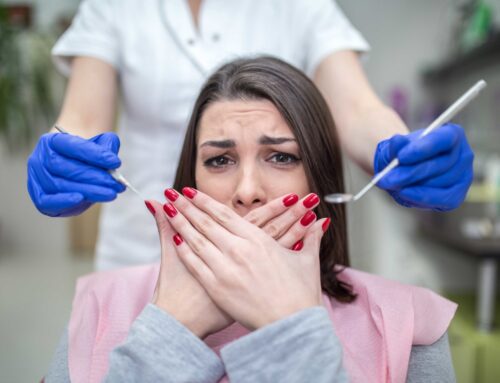Trouble Sleeping at Night? Learn the Symptoms and Causes of Sleep Apnea
We’ve all experienced periods of sleep trouble at one point or another in our lives. Our sleep patterns can be disrupted by many different factors such as stress, travel, illness, and many other things that occur in our lives. However, if you find that your sleep is consistently of poor quality, and that even when you do get a good nights’ sleep you still feel tired and lethargic in the morning, you may be experiencing a common condition that is known as sleep apnea.
You may have heard of sleep apnea before, but more often than not there is little awareness of this condition and what the signs and symptoms are. All too often the symptoms are dismissed as simply due to stress or other common health problems, which results in the condition not being effectively diagnosed or treated, perpetuating the problem and preventing you from getting the proper quality of sleep.
In this article, we’re going to shed some light on sleep apnea and help explain what it is, how you can spot the warning signs, and what some of the possible treatment options are for this condition. The sooner you determine if you are suffering from sleep apnea, the sooner you can get treated and start getting back the good quality sleep you deserve.
Let’s start with a look at what sleep apnea is and how it manifests itself to disrupt your sleep.
What is Sleep Apnea?
Simply put, sleep apnea is a condition where the patient experiences frequent disruptions and interruptions during the sleep cycle. Sleep apnea is categorized in three different types, each with their own particular set of conditions and causes.
Obstructive Sleep Apnea
The most common type of sleep apnea is known as obstructive sleep apnea (OSA) and affects millions of people of all ages and of both genders. OSA occurs when there is a restriction or partial blockage in the airway during sleep, caused by the relaxing of the throat muscles and tongue. This reduced airflow through the throat sends a signal to the brain which triggers you awake for a brief moment to open the airway back up and regain proper oxygen flow.
This interruption in sleep is usually accompanied by a snort, gasp, or brief choking sound. Often, the person does not fully wake from their sleep and is not even aware that the interruption occurs at the time. These interruptions can occur multiple times throughout the night, preventing the person from reaching the deep state of restful sleep that is necessary to feel refreshed and rested in the morning.
Central Sleep Apnea
There is another form of sleep apnea that is less common than OSA, but results in similar disruptions to the sleep patterns. Central sleep apnea (CSA) is different from OSA in that it results from a temporary disruption in the communication between the brain and the muscles. This disruption in communication causes a brief pause in breathing, which ends up waking the brain momentarily and restarts the correct communication patterns for breathing.
While OSA is the result of a physical restriction in the airway, CSA is a result of a pause in the electrical signals from the brain to the breathing muscles. In the end, the physical effects are generally the same, even though the underlying cause is slightly different.
Complex Sleep Apnea
The third type of sleep apnea is a combination of the two distinct types of sleep apnea and is known as either complex or mixed sleep apnea. This unusual condition has been known to occur during the treatment process for patients suffering from OSA. Occasionally, patients undergoing treatment for OSA begin to experience CSA even after the airway is kept free of obstructions or restrictions.
What are the Common Symptoms of Sleep Apnea?
Sleep apnea produces many easily identifiable symptoms in most patients, however many of the symptoms can also be caused by many other physical and medical conditions and so it’s not always properly diagnosed as being the result of sleep apnea. This is why it’s important to be aware of the multiple connected symptoms of sleep apnea so it can be properly treated.
Sleep Apnea Sufferers Will Typically Experience:
- Snoring or snorting during sleep
- Interruptions or pauses in breathing patterns
- Sudden gasps or deeper breaths
- Dry mouth upon waking
- Headaches in the morning
- Drowsiness throughout the day
- Difficulty in falling asleep
- Irritability & increased anxiety levels
What are the Risk Factors for Sleep Apnea?
Certain health conditions and physical characteristics can put a person at a higher risk of developing a sleep apnea condition. In addition to genetic predisposition based on a family history of sleep apnea, some of the more common risk factors include being overweight, of older age, alcohol use, smoking, and chronic nasal congestion. Men are at a higher risk than women, as are people who have heart disorders, and those who are on narcotic pain medications.
How Can Sleep Apnea be Treated?
Most cases of sleep apnea can be treated using similar methods or combinations of treatments in order to achieve the desired results. First, your doctor or sleep therapist will likely recommend lifestyle adjustments if the condition is suspected to be connected to certain aspects of your life such as smoking, allergies, or excess weight.
If these adjustments are not determined to be sufficient to address the severity of your sleep apnea, the treatment will progress most often to the use of a continuous positive airway pressure (CPAP) device. These simple mechanical devices consist of a small mask that covers your nose and is fastened around your head using an adjustable band and connected to a hose that provides an increase in air pressure in to your airway.
CPAP devices are worn throughout the night as you sleep, and provides the pressure needed to keep your airway open and prevent the interruptions in your sleep pattern, allowing you to get more restful sleep.
While CPAP devices are generally the most successful method of providing relief of sleep apnea, some patients can find them awkward or uncomfortable to wear. For patients looking for an alternative method of treatment, you may be directed to your dentist to obtain an oral appliance to wear at night which is designed to reposition your jaw and open up your airway.
In cases of sleep apnea that are not effectively solved by CPAP devices or oral appliances, your doctor may recommend a surgical procedure to correct the problem. These surgical procedures can consist of several different approaches depending on the physical reasons causing the sleep apnea. Tissue removal from the areas causing the problem may be needed, or an adjustment to the position of the jaw could be necessary.
How Do I Know if I have Sleep Apnea?
If you are experiencing symptoms like those described above, or are simply not getting restful sleep anymore, then you should start a conversation with your doctor or dentist and describe your symptoms and concerns. They will be able to determine the best course of action and recommend the right diagnosis method to obtain a definitive answer on whether you are suffering from sleep apnea, or if your symptoms may be related to another condition.
To speak with a sleep apnea expert, contact the team at Georgian Dental® today and we will be glad to help you get the answers and treatments that are best for you.
Appointment Request
If you’re interested in any of our procedures, and would like to meet with one of our dentists to discuss options, costs and get additional information, complete this short form and we’ll give you a call to arrange for a no-obligation appointment at our Barrie clinic.


